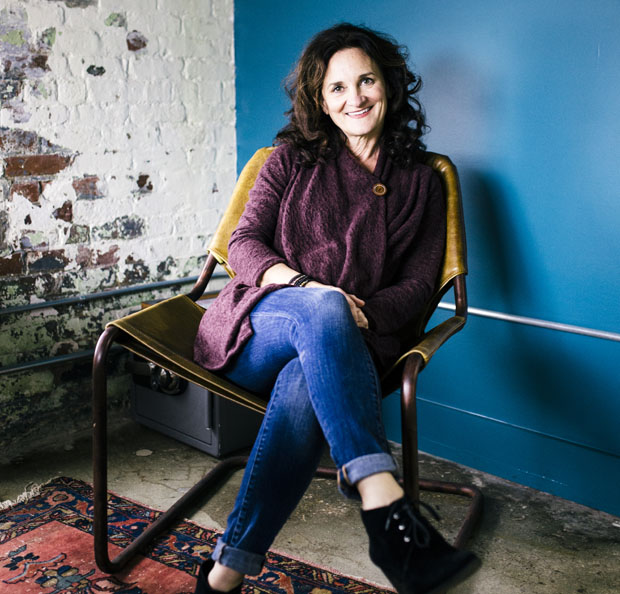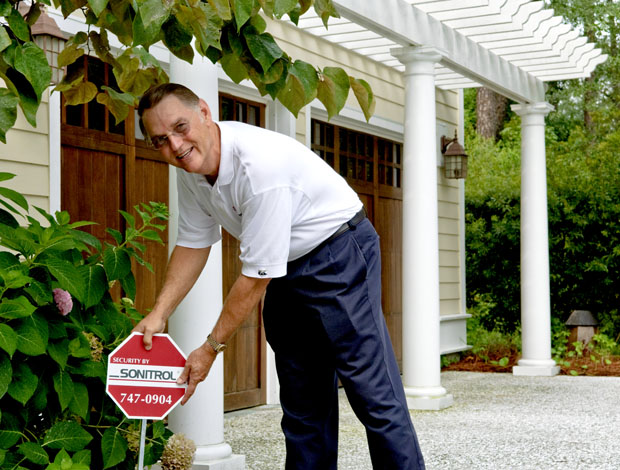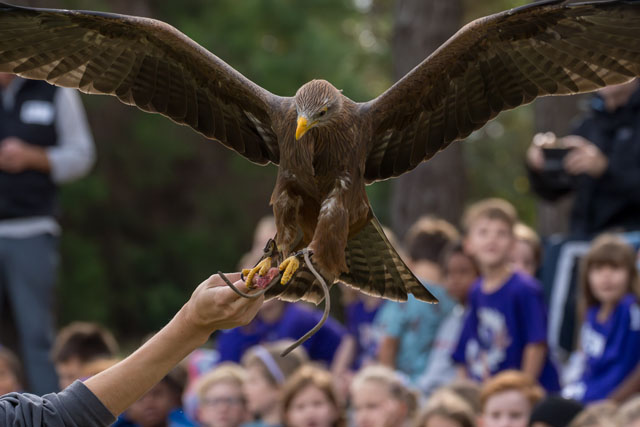Living the Local Life
04 Mar 2016
Head of Lowcountry Local First fosters local businesses
By HOLLY FISHER

Jamee Haley knows what it’s like to be an entrepreneur building a business from the ground up. Before she co-founded Lowcountry Local First nine years ago, she started an embroidery business – mostly crib bedding and pillows with mermaids and ocean themes.
As so many businesses do, Haley’s started as a way to fill a need in her own life. She was living in Jacksonville, Fla., and designing a bedroom for her daughter, but couldn’t find the kind of décor she wanted. So Haley designed and hand embroidered her own.
Friends started placing orders and suddenly, Haley was running a business. Her products landed in 150 stores, including Neiman Marcus, and were featured in Coastal Living magazine. Haley enlisted the help of friends and relatives to fulfill her orders.
Her business reached that inevitable point: it was time to go big or go home, she said.
Online ordering was taking off and she was getting requests to sell the products online. Haley wanted to support the businesses that were purchasing her minimum product amount, hiring people in their community and paying taxes. She researched how to scale her business for growth, including outsourcing the work to China. But she realized it was so inexpensive she knew the workers making the pillows weren’t being paid fairly and she just couldn’t do that. Plus it was eliminating the creative process that drew her to start the business in the first place. So Haley closed up shop.
A New Local Venture
Fourteen years ago, Haley and her family moved back to Charleston. They’d lived here previously while Haley attended Johnson & Wales and later lived on Dewees Island.
The opportunity came along to start Lowcountry Local First, and Haley jumped at the chance. Having grown up in Oklahoma where her uncles were in the ranching and farming business, Haley understood the importance of the land. Her interest in the culinary world gave her a unique perspective on eating local. And her own entrepreneurial background meant Haley could appreciate the impact of local businesses.
“This organization is the culmination of all my past lives and experiences,” Haley said of Lowcountry Local First. “It was the opportunity to elevate those values and build a place based on them.”
The nonprofit started in Haley’s house before moving to a three-bedroom duplex at The Navy Yard at Noisette in North Charleston, where her husband worked.
“We were very scrappy in the beginning,” she said. “It was all hands on deck. We had active board members who were a foundation of the organization.”
Local Relationships Matter
Today, Lowcountry Local First’s 600 members represent 16,000 employees in the Charleston area. Its core initiatives are “buy local” and “eat local.” The “eat local” mantra includes the Growing New Farmers Program, a training and an apprenticeship program for aspiring farmers, and the Dirt Works Incubator Farm where new farmers can launch their farm business with fewer risks and more support.
Lowcountry Local First’s buy local efforts are built on the concept of community investment. For every $100 spent at a chain store, an average of $14 is reinvested in the community. But, for every $100 spent at a local store, an average of $45 is reinvested in the community.
During the holiday shopping season, Lowcountry Local First sponsors Buy Local Month (Nov. 15 to Dec. 15) as a way to bring attention to local businesses and encourage people to purchase their holiday gifts from a locally owned business.
If these efforts get people to shift their mindset even a little it can have a big impact. In fact, it already is.
“More businesses are thinking about what they can source locally – marketing, accounting, printing or office supplies,” she said. “That’s what creates that economic multiplier.”
Haley points to a video the organization produced last fall titled “Relationships Matter.” Mike Lata, proprietor of two world-class restaurants, FIG and The Ordinary, explained how he worked with local businesses, including a local bank and craftsmen, when he decided to open The Ordinary. He uses a local company for employee payroll. And, of course, turns to local farmers and fishermen, for his menu items. Using local companies allows businesses to forge lasting business relationships because, as Lata points out, they are invested in each other’s success.
This kind of mutual investment is growing around the Charleston region – largely thanks to Lowcountry Local First and its efforts to build awareness and foster those relationships.
Building Local Businesses
A perfect example is Local Works. In 2014, Lowcountry Local First moved its headquarters into a 3,000-square-foot space on Upper Meeting Street. In addition to housing the organization’s employees, most of the building is co-working space. Entrepreneurs and small businesses can rent part-time or full-time desk space at an affordable rate. Plus, they have access to a conference room, Wi-Fi and printing – not to mention the opportunity to connect with other businesses and forge those all-important relationships.
In February, Lowcounty Local First announced that just 18 months after Local Works opened, the 42 entrepreneurs in the co-working space generated more than $16 million of annual revenue. A survey of the companies using the space also found: 55 new employees were hired; 56 percent were women-owned companies; 191 new business relationships were formed through working at Local Works; and more than $410,250 was paid to locally owned and headquartered service providers and product suppliers in the community.
Haley is proud of these accomplishments but she also realizes her organization’s work isn’t done.
She knows the high cost of real estate and slow permitting processes are barriers for businesses looking to launch or expand in the Charleston region. She recognizes tackling these challenges isn’t easy and takes some “serious out-of-the-box thinking.”
That line of thinking means helping governments speed up the permitting process so businesses can generate revenue faster. It means asking real estate developers to adjust their mentality to take a little less of the pie, she said.
Another important next step is to level the playing field for local businesses in South Carolina.
For example, economic development officials typically dangle tax breaks in front of giant companies like Boeing, Amazon and Volvo as an inventive carrot. Rarely do local businesses receive those same kind of tax breaks for opening or expanding in the area.
“We’re not against national companies, but we shouldn’t be favoring them over the businesses we have here,” Haley said.
She jokes that you’ll find her at Target buying toilet paper and toothpaste like a lot of people. But the idea is to shop at the big box stores sparingly and devote a majority of our dollars to local businesses.
Haley believes people in Charleston are getting that message. A survey of tri-county residents found 68 percent of people were consciously making a shift to supporting local businesses.
That kind of feedback makes all the hard work – especially in the startup days – worth it for Haley.
“I can’t even begin to tell you how rewarding that feels,” Haley said. “I did this for two years with no pay. I’m very committed – that’s the kind of person I am. Nothing has resonated with me career-wise like (Lowcountry Local First). It helps create a better world for my two children to grow up in.”
Jamee Haley
Family
Husband, Jim; children, Brody and Maya
Hometown
Tulsa, Oklahoma
Education
Bachelor’s degree in fashion, textiles and design from Oklahoma State University
Hobbies
Cooking, yoga and spending time outdoors kayaking and going to the beach












